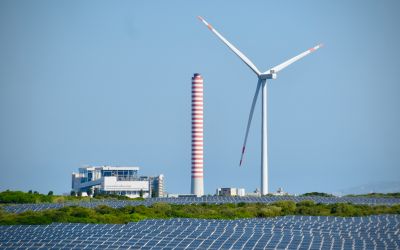UK Government invests £20 million to develop innovations for green shipping
The £20 million investment launched by the UK Government will be used to develop innovative zero emission vessels and clean port infrastructure.

The £20 million investment launched by the UK Government will be used to develop innovative zero emission vessels and clean port infrastructure.
The funding will support the development of prototype vessels and port infrastructure that could then be rolled out widely, supporting the sector towards net-zero, and help ensure that the UK builds back greener from the coronavirus pandemic.
The government is encouraging scientists and academics to work with UK shipping, ports and shipbuilders to enter ambitious proposals into the competition, which will:
- Drive economic growth
- Revitalise coastal communities
- Create 1000s of jobs
- Position the country as a leader in the field
Transport Secretary, Grant Shapps said: “We have a proud shipbuilding history and, together with industry, I am determined to build on that as we look to develop the innovations of the future and meet our net-zero target. We are revolutionising maritime technology and, from electric boats to hydrogen ports, we will change the way this country sails forever, and bring jobs and prosperity to the UK.”
The announcement of the funding comes as the government also prepares to publish its transformational Transport Decarbonisation Plan, setting out how all modes of transport – sea, rail and aviation – can become net zero.
Describing this as a “turning point or the UK’s maritime sector”, Maritime Minister Robert Courts added that he “urges this country’s best thinkers to put their green ideas forward and help us deliver a better, cleaner maritime sector.”
Robert Courts also confirmed the launch of two studies focusing on achieving net-zero in both the recreational craft sector and offshore wind sector, both being government-funded.
The study being developed on the offshore wind sector is being produced in partnership with Offshore Renewable Energy (ORE) Catapult and Workboat Association, and will bring a coalition of industry partners together to work towards enabling all operation and maintenance vessels in the North Sea offshore wind sector to be zero emissions by 2025.
Andrew Jamieson, ORE Catapult chief executive, said: “This report will make clear that the North Sea’s offshore wind and maritime industries, made up of wind farm, vessel and port operators, are united in their determination to decarbonise their operations."
"We are confident that the UK supply chain has the knowledge, endeavour and innovation to support this ambition while creating jobs and growth in coastal communities and providing a springboard for the UK to lead the clean maritime industry of the future.”
The new study on recreational craft will be in partnership with the Carbon Trust, and will set out how the barriers to the supply of, and demand for, zero-carbon recreational craft can be overcome. It will also make recommendations to government and industry, including the use of alternative fuels.
Tom Delay, chief executive of the Carbon Trust, added: “The maritime sector must decarbonise by 2050. Large numbers of people both enjoy and are employed by the recreational craft industry, and there are opportunities for leadership in decarbonisation technologies."
"The recreational craft sector encompasses a wide range of vessel types, and there are unique challenges that need to be overcome. A combination of targeted innovation support, cross-industry collaboration and regulatory and financial intervention will be needed to accelerate the development and uptake of low carbon technologies.”






